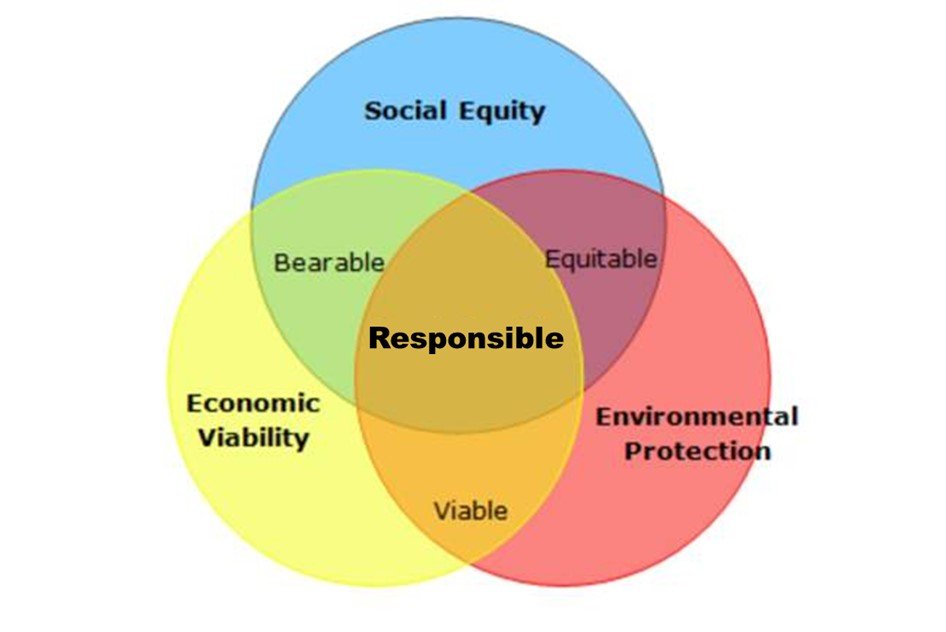This piece, authored by Dr Brett Glencross, was published in the August 2023 edition of International Aquafeed
While everyone is touting the importance of responsible feeds, it needs to be noted that this depends for the most part on the capacity for the sourcing of responsible ingredients. This of course depends on the sourcing of responsible primary raw materials. But like many of these quasi environmental and social issues, the devil-is-in-the-detail. Afterall, what do we actually mean by “responsible sourcing”? There are various definitions, but responsible sourcing is also referred to as supply chain responsibility and is generally considered a commitment by companies within a defined supply-chain to consider social and environmental considerations in addition to economic ones when managing their relationships with suppliers (see Figure 1).
In terms of the environmental side of things, issues around land conversion in crop production supply chains, have been one issue at point due to their effects on threatening biodiversity and valuable carbon stores in critical ecosystems (e.g., rainforests in Brazil). Similarly, the sourcing of fish from illegal, unreported, and unregulated (IUU) fishing is another. To address such environmental threats, and in the process reward those who are trying to do the right thing, many such commodity markets have resorted to the development of certification systems, usually initiated by the industries themselves, but often involving broad range of stakeholders to ensure that not only the industry’s agenda is addressed (e.g., MarinTrust and RTRS Certified Soybean). Such systems have been instrumental in driving the progression of improved practices across different industries in addressing their environmental responsibilities.
But what of the social equity? Much has been made of issues around modern slavery, and various freedoms we often take for granted in developed nations but are often lacking in other parts of the world. While we hear of slavery associated with some of the high seas fishing fleets, we hear less about forced labour, bonded servitude, and loss of human rights in other sectors, although we know that these issues exist (amnesty.org). Irrespective, by applying a greater degree of scrutiny on the providence of ingredients, their origins and obtaining independent validation of claims of social as well as environmental standards, seems to be the best way forward here too.
So, based on these examples of setting both environmental and social standards, where do various feed commodities sit in terms of independent certification standards being applied? Presently just under 50% of all global fishmeal production (~3 million tonnes) is certified with MarinTrust certification and in many cases also holds Marine Stewardship Council (MSC) certification. About 6 million tonnes soybean production is certified by the Roundtable on Responsible Soybean (RTRS), which although constitutes a huge volume, is only about 1.5% of production (391 million tonnes in 2022/23), and despite that low percentage, it is still one of the better certified of all agricultural commodities. However, beyond these two ingredients, there are few other protein sources that have any similar such certification applied to their sourcing. While arguments have been made for the lack of need for such responsible sourcing criteria for many other ingredients, especially those that are by-products of other sectors, the reality is that all ingredients have an environmental footprint, either directly or indirectly as part of their sourcing. Responsibility also implies traceability, which is a cornerstone of food safety policies. The Global Dialogue on Seafood Traceability (GDST) is working to create the first-ever global industry standards for seafood traceability and standards such as MarinTrust will align with GDST’s data requirements. A lack of responsibility in production of one resource, does not necessarily mean that a by-product is free from such responsibility. As we can clearly see, sourcing responsible ingredients depend on sourcing of responsible primary raw materials.










